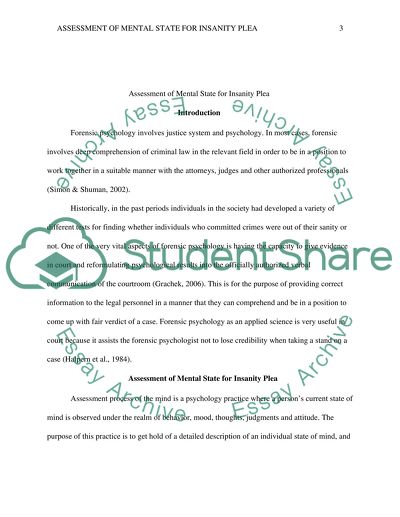Cite this document
(“Assessment of Mental State for Insanity Plea Research Paper”, n.d.)
Assessment of Mental State for Insanity Plea Research Paper. Retrieved from https://studentshare.org/psychology/1467201-you-are-asked-to-demonstrate-your-ability-to
Assessment of Mental State for Insanity Plea Research Paper. Retrieved from https://studentshare.org/psychology/1467201-you-are-asked-to-demonstrate-your-ability-to
(Assessment of Mental State for Insanity Plea Research Paper)
Assessment of Mental State for Insanity Plea Research Paper. https://studentshare.org/psychology/1467201-you-are-asked-to-demonstrate-your-ability-to.
Assessment of Mental State for Insanity Plea Research Paper. https://studentshare.org/psychology/1467201-you-are-asked-to-demonstrate-your-ability-to.
“Assessment of Mental State for Insanity Plea Research Paper”, n.d. https://studentshare.org/psychology/1467201-you-are-asked-to-demonstrate-your-ability-to.


